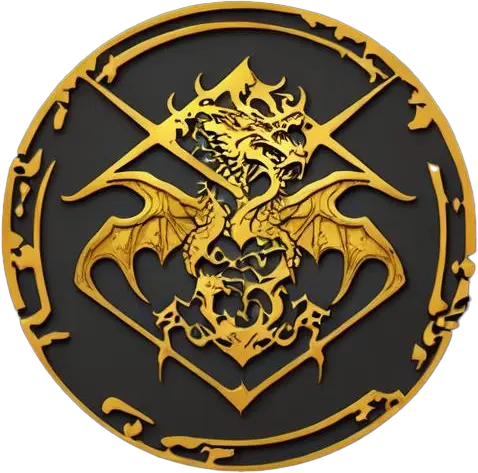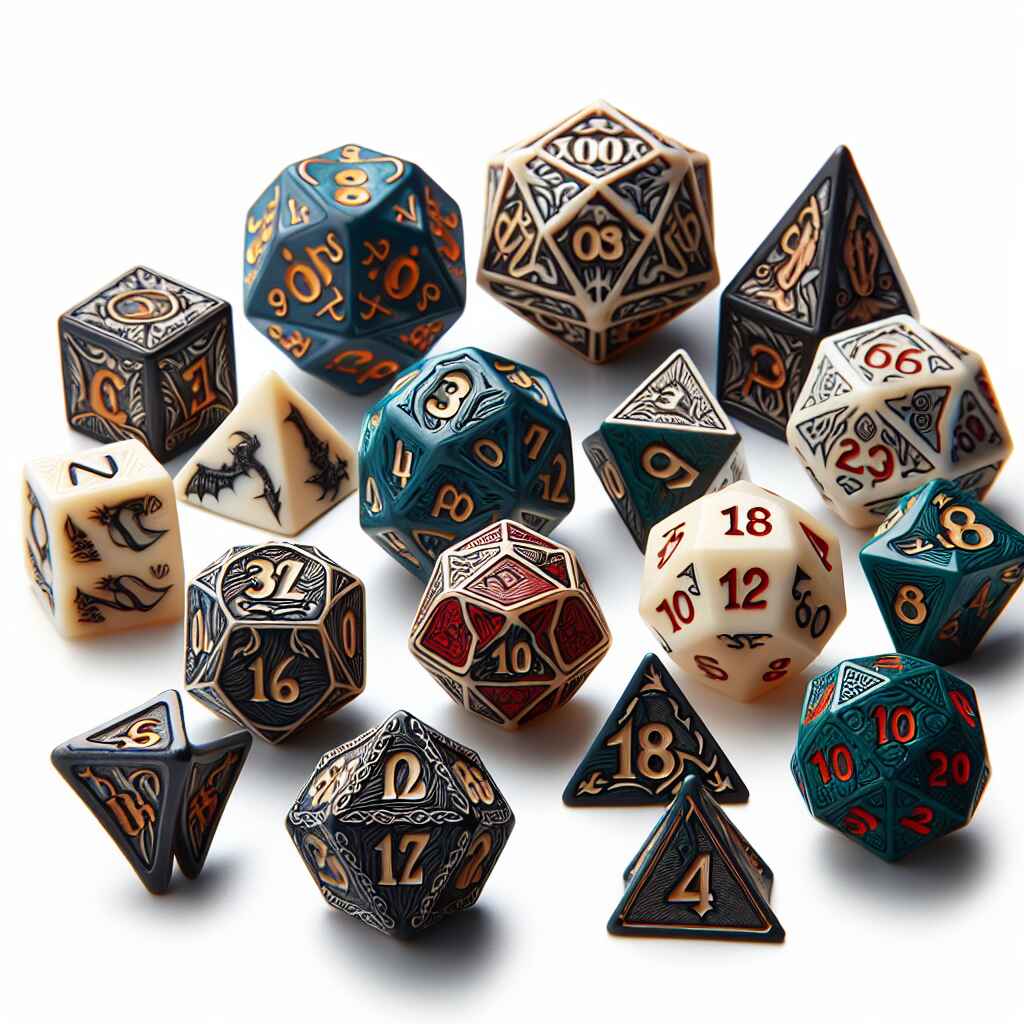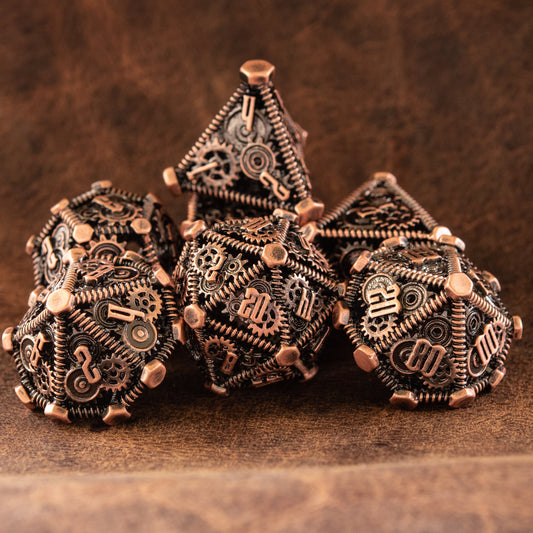How Many Dice Do I Need for DnD?
Introduction
Dungeons & Dragons (DnD) is a game where the roll of a die can determine the fate of a character's journey. For both new and seasoned players, understanding the importance and variety of dice used in the game is crucial. One of the most common questions asked by beginners is, "How many dice do I need for DnD?" This article will delve into the essential dice needed for gameplay, their roles, and why having the right set of dice can enhance your DnD experience.
Basic Dice Set for DnD
The Standard 7-Dice Set
Every DnD player should start with a standard 7-dice set, which includes:
- d4 (four-sided die)
- d6 (six-sided die)
- d8 (eight-sided die)
- d10 (ten-sided die)
- d% (percentile die)
- d12 (twelve-sided die)
- d20 (twenty-sided die)
These dice form the core toolkit for any adventurer, covering the majority of rolls needed in the game.
Description of Each Die (d4, d6, d8, d10, d%, d12, d20)
- d4: Often used for smaller damage rolls, such as dagger attacks or minor spells.
- d6: The most familiar die, used for ability scores, weapon damage, and various spells.
- d8: Commonly rolled for weapon damage and certain spells.
- d10: Utilized for specific spells and for generating percentile results when paired with the d%.
- d%: Represents tens in percentile rolls, used in conjunction with a d10 to generate numbers between 1 and 100.
- d12: Less frequently used but essential for certain weapon damage rolls.
- d20: The quintessential die in DnD, used for attack rolls, saving throws, and ability checks.
Why Each Die is Important
Each die in the standard set has a unique role, contributing to the game's complexity and excitement. The d20, for instance, is pivotal in determining the success or failure of actions, while the d6 is versatile, used in both damage calculations and ability score generation. Together, these dice ensure that every aspect of gameplay is covered, from combat to spellcasting.
Minimum Dice Needed for Players
One Set Per Player
At the very least, each player should have their own 7-dice set. This avoids delays and keeps the game flowing smoothly, as players won't need to share dice during critical moments.
Advantages of Having Multiple Sets
While one set per player is sufficient, having multiple sets can be advantageous:
- Efficiency: Rolling multiple dice simultaneously speeds up the game.
- Convenience: Different colored sets help distinguish personal dice from others.
- Preparedness: Extra sets mean you're always ready for complex spells or multi-dice rolls.
Specific Class Requirements (e.g., Spellcasters, Rogues)
Certain classes benefit from having additional dice:
- Spellcasters: Classes like Sorcerers and Warlocks often require numerous d6s or d10s for spell damage.
- Rogues: Frequently use multiple d6s for sneak attack damage, making extra d6s invaluable.
- Barbarians: Might need additional d12s for their weapon damage rolls.
Dice for Dungeon Masters
Essential Dice for DMs
Dungeon Masters (DMs) should have a robust collection of dice, including:
- Multiple d20s: For making numerous attack rolls against the party.
- Extra d6s and d8s: Essential for rolling damage quickly and efficiently.
Additional Dice for Efficient Gameplay
DMs might also benefit from having specialty dice:
- d100: For percentile rolls without needing to pair a d10 with a d%.
- d24: Occasionally used in specific scenarios or homebrew rules.
Tracking Damage and Hit Points
Using extra d6s to track damage and hit points can streamline combat. Placing dice on the table to represent a monster's remaining hit points allows players to quickly assess the situation, enhancing the tactical aspect of the game.
Why Dice are Essential in DnD
The Role of Dice in Gameplay
Dice are the arbiters of fate in DnD, determining the outcomes of actions, attacks, and spells. They inject an element of chance, ensuring that no two games are ever the same.
Adding Excitement and Uncertainty
The randomness of dice rolls adds excitement and uncertainty to the game. A critical hit on a d20 can turn the tide of battle, while a low roll can lead to unexpected challenges, keeping players on their toes.
Different Dice for Different Actions
Each type of die serves a specific purpose, from the d20's pivotal role in determining success to the d6's versatility in damage and ability checks. This variety ensures that every action in the game has a corresponding die, adding depth and complexity to gameplay.
By understanding the essential dice needed for DnD, players and Dungeon Masters alike can ensure they are well-prepared for any adventure. Whether you're a spellcaster needing extra d10s or a DM tracking damage with d6s, having the right dice at your disposal is crucial for a smooth and engaging game.
Advanced Dice Needs
Dice for Faster Gameplay
In the world of Dungeons & Dragons, efficiency can make or break the experience. For those looking to streamline their gameplay, having extra dice on hand is invaluable. When multiple dice rolls are required, such as during intense battles or complex spellcasting, having a surplus of each type can significantly reduce downtime. For example, rolling 8d6 for a Fireball spell is much quicker if you have all eight dice ready, rather than rolling a single d6 multiple times.
Recommended Quantities for Each Die Type
To optimize your DnD sessions, consider the following recommended quantities for each die type:
- d4: 4-6 dice
- d6: 10-20 dice
- d8: 6-8 dice
- d10: 4-6 dice
- d%: 2-3 dice
- d12: 2-4 dice
- d20: 4-6 dice
These quantities ensure that you're well-prepared for any situation, whether it's rolling for damage, determining outcomes, or handling multiple attacks.
Specialty Dice (d3, d24, d30, d100)
Beyond the standard set, specialty dice can add unique elements to your game:
- d3: Useful for certain abilities and homebrew rules.
- d24: Occasionally required for specific scenarios or custom rules.
- d30: Adds a layer of complexity for unique rolls.
- d100: Ideal for percentile rolls, offering a direct way to generate numbers between 1 and 100.
While not essential, these specialty dice can enhance gameplay and provide additional options for creative Dungeon Masters.
Building a Dice Collection
Starting with the Basics
Every great collection begins with a solid foundation. Start with the standard 7-dice set, ensuring each player has their own. This basic set covers all the core mechanics of DnD and is sufficient for most gameplay scenarios.
Gradually Expanding Your Collection
As you become more immersed in the game, gradually expand your collection. Add extra dice based on your class needs and gameplay style. Spellcasters may need more d6s and d10s, while melee-focused characters might benefit from additional d8s and d12s.
Maximizing Your Dice Collection
To maximize your dice collection:
- Organize by Type: Keep dice organized by type for easy access.
- Invest in Quality: High-quality dice ensure fair rolls and durability.
- Explore Variety: Different colors and designs can help distinguish between sets and add a personal touch to your collection.
Dice Maintenance and Etiquette
Cleaning and Storing Dice
Proper maintenance ensures your dice remain in top condition:
- Cleaning: Use mild soap and warm water to clean dice. Avoid harsh chemicals that can damage the surface.
- Storing: Store dice in a cool, dry place. Use a dice bag or box to keep them organized and protected.
Sharing Dice at the Table
Sharing dice is common, but it requires etiquette:
- Ask Permission: Always ask before using someone else's dice.
- Return Promptly: Return borrowed dice immediately after use.
- Respect Rituals: Some players have superstitions about their dice. Respect their preferences.
Dice Superstitions and Rituals
Dice superstitions add a layer of fun to the game:
- Lucky Dice: Many players have a favorite die they believe brings good luck.
- Rituals: Common rituals include blowing on dice, rolling them a certain way, or "charging" them with energy before a critical roll.
Using Digital Dice
Pros and Cons of Dice Apps
Digital dice apps offer convenience but come with pros and cons:
-
Pros:
- Convenience: Easily accessible on smartphones and tablets.
- Accuracy: Ensures fair and random rolls.
- Features: Often include additional tools like character sheets and spell lists.
-
Cons:
- Lack of Tactile Experience: Some players miss the physical act of rolling dice.
- Technical Issues: Apps can crash or malfunction, disrupting gameplay.
Recommended Dice Apps
For those interested in digital options, consider these popular dice apps:
- DnD Beyond: Comprehensive toolset including digital dice.
- Roll20: Virtual tabletop with integrated dice rolling.
- Dice by PCalc: Simple and reliable dice rolling app.
Enhancing Gameplay with Digital Tools
Digital tools can enhance gameplay by:
- Speeding Up Rolls: Quickly generate results for complex rolls.
- Organizing Information: Keep track of character stats, spells, and inventory.
- Facilitating Remote Play: Ideal for online sessions, allowing players to connect from different locations.
Dice are the heart of Dungeons & Dragons, driving the game's excitement and unpredictability. From the essential 7-dice set to specialty dice and digital tools, having the right dice enhances every aspect of gameplay. Whether you're a player or a Dungeon Master, building a versatile dice collection ensures you're always prepared for the adventures ahead.
So, how many dice do you need for DnD? Start with the basics, expand as needed, and embrace the thrill of rolling the dice of destiny. Now, gather your dice, rally your party, and embark on epic quests with confidence!






